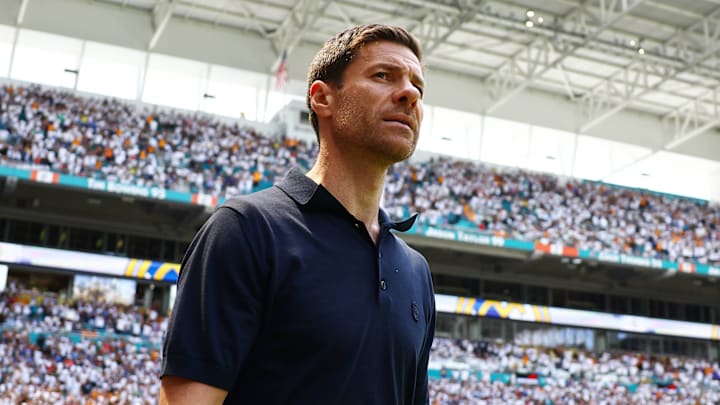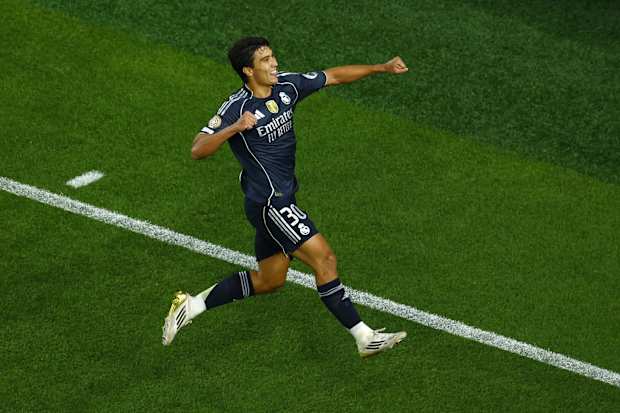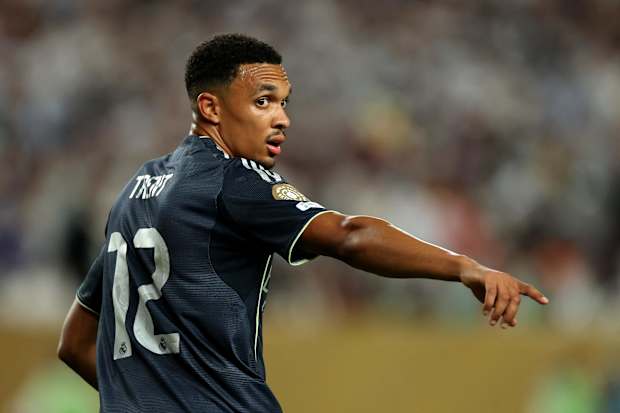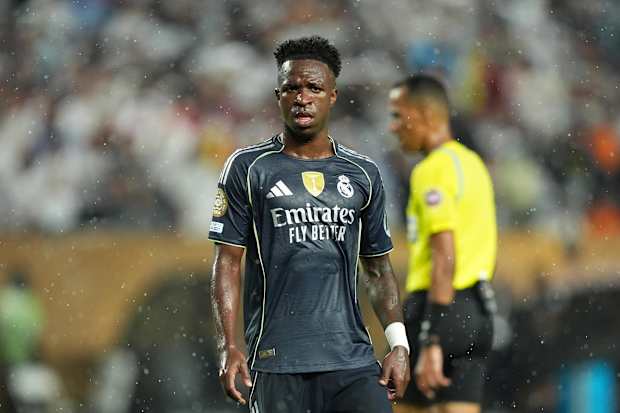Xabi Alonso's Key Takeaways: What Real Madrid's Club World Cup Group Stage Revealed

Real Madrid is developing a fresh approach under Xabi Alonso's guidance with every game they contest in the FIFA Club World Cup.
Following Carlo Ancelotti's departure, Real Madrid brought Alonso back to the Spanish capital to lead his former team. The Spanish manager had only a brief period with his new squad before making his managerial debut on American soil this summer.
Though Real Madrid began the Club World Cup with a 1–1 stalemate against Al Hilal, they subsequently claimed wins over Pachuca and RB Salzburg, topping Group H. During this period, Dean Huijsen and Trent Alexander-Arnold made their eagerly awaited first appearances, Real Madrid Castilla graduates received opportunities to excel, and the squad tested a different tactical approach.
Here are three key insights Alonso will have gained during his brief period managing the world's most prestigious club.
Gonzalo García Provides the Energy Real Madrid Lacked Last Season

Real Madrid struggled throughout their 2024–25 season without a natural goalscorer coming off the substitutes' bench. Following Joselu's exit, the squad lacked a genuine striker who could energize the team when Kylian Mbappé and others failed to deliver.
Meanwhile, Gonzalo García remained with Real Madrid Castilla, awaiting a genuine chance to join the senior squad. Though he featured six times under Ancelotti, the Spanish forward accumulated merely 62 minutes during the previous campaign.
Under Alonso's leadership, the 21-year-old has netted twice and provided one assist across his recent three outings. Beyond his pace, intelligent movement, and clinical finishing, he demonstrates remarkable dedication. García consistently dropped deep to support Vinícius Júnior on the left flank and spearheaded the team's pressing efforts.
García's playing time will likely decrease upon Mbappé's return, but he has clearly demonstrated his readiness for a regular role in Alonso's plans for the 2025–26 campaign.
Real Madrid Can Successfully Operate With Three Center-Backs

Witnessing Real Madrid utilize three center-backs is virtually unprecedented, yet Alonso implemented this formation merely three games into his reign. The new coach employed a 3-5-2 setup against Salzburg, and Los Blancos produced their finest Club World Cup display.
Huijsen, Aurélien Tchouaméni, and Antonio Rüdiger formed Real Madrid's defensive trio while Fran García and Alexander-Arnold operated as wing-backs on opposite flanks. The team dominated proceedings completely, scored three times, and achieved their tournament's first shutout. Alexander-Arnold also produced his finest display in Madrid colors, generating the most scoring opportunities and completing the most defensive interventions.
Following the victory, Alonso discussed the tactical switch: "The players possess sufficient intelligence to understand this system's advantages and disadvantages. It has provided us with stability, composure, and match control.
"It creates a three-versus-two situation with Huijsen and Rüdiger positioned wide, leaving space centrally for Jude [Bellingham] and Arda [Güler]. I appreciate that adaptability, allowing me to utilize it when circumstances require."
Bellingham truly excelled in his central midfield role. The English star assisted Vinícius Júnior's opener, misplaced only five passes, and even made a goal-line clearance to preserve Real Madrid's clean sheet.
Whether Real Madrid will permanently adopt three center-backs remains uncertain, but Alonso now understands his team can thrive in his preferred tactical setup.
Real Madrid Remains an Ongoing Project

Despite claiming Group H's top position, Real Madrid cannot achieve a complete transformation in merely three matches under Alonso. The team still possesses vulnerabilities and ingrained problems that require addressing if Los Blancos hope to advance far in the Club World Cup.
The most obvious concern remains Real Madrid's defensive pressure. While Alonso commended the team's defensive "commitment" following their Salzburg triumph, he acknowledged there remains "significant progress needed" ahead.
Real Madrid relied heavily on their star players to rescue them from matches that should never have been competitive last season. The squad lacked balance, surrendered lengthy possession periods to opponents, and made minimal efforts to regain the ball. They also displayed considerable reluctance to cover defensive ground.
Vinícius Júnior and Mbappé faced the harshest criticism for the latter issue. The Brazilian has demonstrated encouraging signs without possession under Alonso, though Gonzalo García still occasionally covered his defensive duties. Concerns also exist regarding Mbappé, who has yet to feature under Alonso's management.
The new manager requires the Pichichi Trophy and European Golden Boot recipient to embrace his tactical philosophy, or Real Madrid will never achieve the standards necessary to overcome teams like Manchester City or Paris Saint-Germain this summer.
